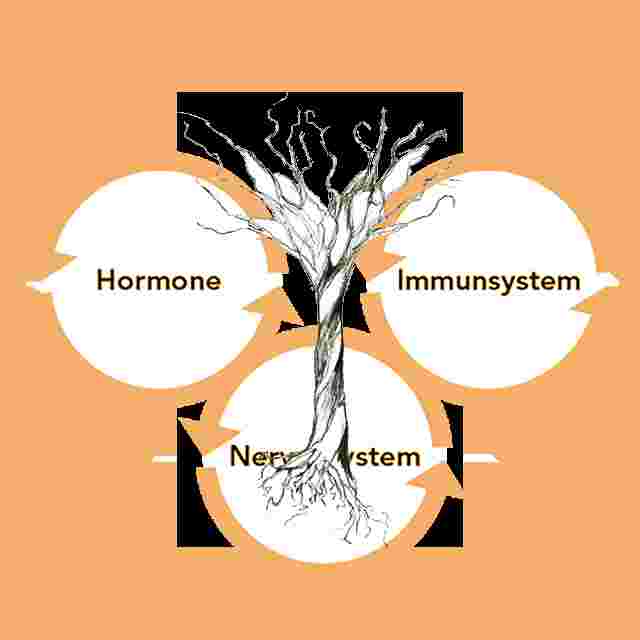

Before we jump head-over-heels into this trendy and highly controversial subject, you may want to reflect your very own eating habits and attitude to food as nourishment.
My checklist
Do I feel really good about the way I eat?
Do I tend to keep trying out new diet trends?
Do I actually like eating?
Do I constantly exercise restraint when eating?
Do I drive myself crazy counting calories all the time?
Am I a fussy eater?
Do I eat too much?
Am I afraid of fat and avoid it as much as I can?
Do I feel too fat? or ugly?
Do I tend to put on weight?
Is my stomach too fat?
Is my waist expanding?
Do I become bad-tempered when I am hungry?
Do I have attacks of hunger pangs or food cravings?
Does my midday dinner make me tired and reduce
my performance ability?
Do I eat well-seasoned food?
Do I eat as many colourful varieties of food as possible?
Do I fast on a regular basis?
Eating these days is often accompanied by hunger pangs, food cravings, anorexia nervosa, bulimia, anxiety attacks and countless diets. Many of us suffer from eating disorders. Calorie counting, fear of unhealthy food, loss of what it means to feel hungry or full, images of ideal beauty in our mind’s eye and constant feelings of inadequacy are our constant companions at meal times – robbing us of the joy of eating. We may well be aware of the importance of a good diet to our wellbeing, but we are unsure how to put that knowledge into practice.
What and how we eat affects our sense of wellbeing, as everyone knows. Our stomach and bowel talk to us on a daily basis and tell us in their own way whether the food we consume agrees with us or not.
What is less or even rarely known is the effect of our diet on the metabolic and inflammatory processes occurring inside our body.
I am not trying to write a book here about diets. Instead I am trying to give you a glimpse of the physiology inside our body. So this chapter is all about inflammation. It will be a brief overview only, for this subject is worthy of an entire book on its own.
How can we decide for or against a diet or an eating plan if we don’t know our own body and cannot interpret its response to certain foods?

How and what we eat, significantly influence the inflammation inside our body.
It is not my intention to comment on the respective merits of paleo, food-combining, vegan, vegetarian, ketogenic, lactose-free, gluten-free, fat-reduced or fat-free diets. Instead, I want to give you a few principles you can apply to your food choices, which I think will help you make the right decisions.
Your feel for your own body and your own self-awareness play a central role in your eating habits too. Maintaining a keen sense of self and your own personal wellbeing is in my view the best way out of the diet labyrinth. This is why I have designed a kind of eating diary to help you perform some self-analysis.

What we definitely know: Convenient processed foods are not good for us.
For decades my own history was defined by a very negligent approach to eating. My way of eating was more like stuffing myself to try and curb my hunger.
As a result I struggled with body-weight issues and gastrointestinal problems. My self-image was distorted. I felt too fat, regardless of how many kilos showed up on my bathroom scales. I have since found my own path.
Because I really enjoy eating bread, but want to cut down on as many carbohydrates as possible, I make my own bread from almond meal, which has almost no carbohydrates. I would never have thought it possible only three years ago. Me baking bread – unthinkable!
